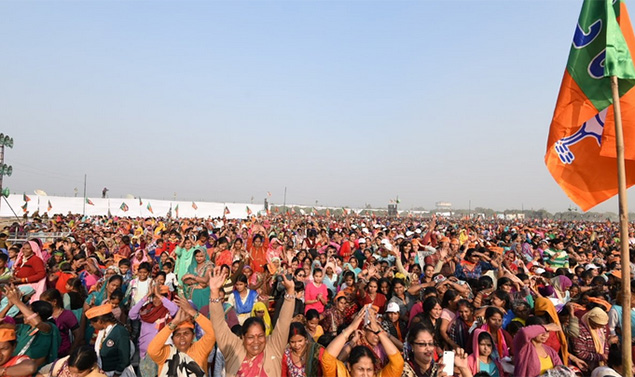
Kolkata: "Consecration of a Hindu Vote Bank" not Prime Minister Narendra Modi's "Development Agenda" and his much publicised "Sab Ka Saath Sab Vikaas" slogan was instrumental in the resounding victory of Bhartiya Janata Party (BJP) in Uttar Pradesh, a senior Journalist noted in his recent column.
"The Modi crowd can be expected to reject any suggestion of a Hindu vote-bank and the secular parties and leaders may also refuse to acknowledge it, but there is only one way to read the UP vote: The Hindu vote stands consecrated", Harish Khare, Associate Editor of The Tribune said in his analysis of the Uttar Pradesh elections.
"The process that was initiated prior to the 2014 Lok Sabha campaign was never allowed to fade away. The Muzaffarnagar violence and its memory were assiduously kept alive. Even Kabir's famous verse ...Rahimin dhaga prem ka... got to be cited to remind one and all of the knotted connection that had come to define the Hindu-Muslim ties in village after village", he said.
Stating that not fielding a Muslim in any of the state assembly seats was a well-planned strategy of the BJP, Khare said, "In 2014 (Lok Sabha General Elections), a message was successfully transmitted that the majority community was under siege and that the BJP, under Modi's leadership, was the only party that could see to it that the community's interests were defended and its values preserved", he said.
In 2014, for the first time since 1952, not a single Muslim was elected in the Uttar Pradesh Parliamentary Elections.
"It has been suggested that the UP verdict is a vote on demonetisation, as well as an endorsement of the 'surgical strikes'. The suggestion is that the voters were happy to put up with all the notebandi-centric dislocations and disruptions because it had put the terrorists out of business and that Pakistan's dirty designs had been put to a naught. But, then, why should this nationalistic messaging be confined to the old UP?", Khare asked.
"No one can argue that the voters in Punjab, Goa and Manipur lack in patriotism; Punjab being the border state has every reason to be receptive to any anti-Pakistan sales-pitch. Yet, the BJP lost even the Pathankot, Dinanagar, Gurdaspur assembly seats in the area of the terror-attacks under Modi's watch", he added.
"The Modi magic worked in Uttar Pradesh because of a very sizeable Muslim presence, and, therefore, it was easy to inject effortlessly zero-sum sentimentality into the election-time discourse. This is not the first time a Hindu consolidation has been attempted. It has been working rather well in Gujarat since 2002. It worked in UP in 2017 perfectly because of three convergences. First, the Hindus could be made to feel aggrieved", he said.
"The BJP's two principal rivals -the Bahujan Samaj Party and the Samajwadi Party ---could be portrayed as being too solicitous and too eager to court the Muslim voter. A certain kind of moral authority was grafted around the Hindus' perceived sense of grievances. In particular, the upper castes and the non-Yadav OBCs could be made to feel the threat of being deprived of their legitimate share in the power arrangements because both the BSP and the SP (along with the old culprit, the Congress) were pandering to the Muslims. Because Behn Mayawati's BSP was openly basing its electoral pitch on a Dalit-Muslim axis, the BJP rhetoric and tactics seemed morally justified to the upper castes . A kind of moral equivalence was manufactured about speaking up for the Hindus", he said.
Khare further said, "The Hindus in UP could be summoned to a kind of solidarity because the anti-Muslim sentiment was served up with an anti-Pakistani dressing. The Prime Minister's reference to the Kanpur rail accident and to the "conspirators" sitting across the borders was not at all an innocent invocation. The trick has always been as how to make the Hindus see a connection between the Muslims and Pakistan. This was made when the BJP president used the acronym KASAB to make the point — and the connection.
"Modi is an authentic salesman for the "Hindu cause." At the core of Modi's appeal, since 2002, is a political persona that is unapologetically committed to securing the majority community's interests. He does not suffer from any secular squeamishness. His Fatehpur speech, on February 23, was a classic: "If you create Qabristan in a village, then a Shamshaan should also be created. If electricity is given uninterrupted during Ramzan, then it should also be during Deepavali without a break. Bhedbhaav nahin hona chahiye [there should be no discrimination]."
"The Indian polity stands re-jigged. First after 2014, and now after 2017, the message is clear: the Muslim votes are not needed to capture power in India because a Hindu vote-bank has come into existence and it will not be allowed to disintegrate. A kind of politics of exclusion would inevitably assert itself", he said.


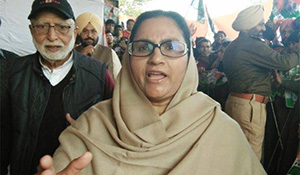
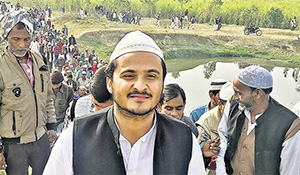




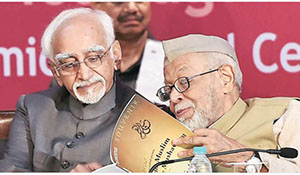
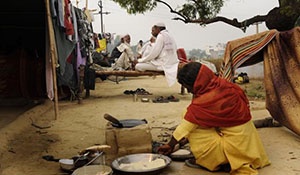

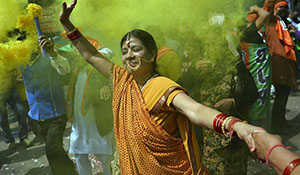
 | Quick links
| Quick links